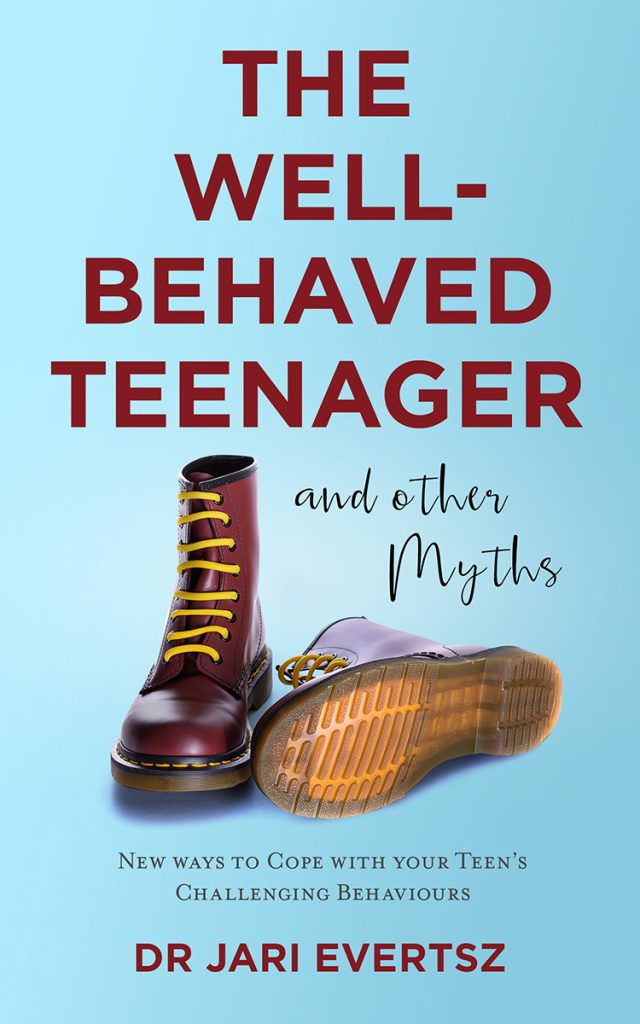
By Dr Jari Evertsz
If you are the parent of a teenager, welcome to a landscape that feels very different to the primary school years. There are some mixed blessings: the highs are higher and the lows are definitely a challenge. Sitting down to talk with parents, a word that often comes up is ‘volatility’. Why is it that teenagers blow up so quickly, and why don’t they listen to us? Things can even get out of hand quickly on some occasions; family violence by teens is unfortunately, becoming more common.
In my experience as a clinical psychologist, conflict with teens can leave a parent feeling isolated and as if, somehow, they’ve handled the situation wrongly. Some of the traps parents fall into when conflict breaks out include:
- Feeling disempowered and doing nothing
- Following the child and trying to get into their room
- Issuing threats of withdrawals etc, to a room that quickly
becomes empty - Arguing back, yelling and getting angry
- Becoming scathing or using personal slights
What it can feel like
To parents, it can feel like they are not listened to, and not respected. They can feel hugely taken for granted and as if their child is getting away with everything, while taking all of the power.
How can we see the situation instead?
We know that teenagers often display rudeness, the sulks, a lack of empathy, boundary-pushing, and a breathtaking level of self-focus. Although this is common it’s not to be encouraged and it needs effective intervention. Remember this: you have as much time as you need to respond. You don’t have to respond in an instant. Where did we get that idea?
Additionally, you have many different means at your disposal. You probably provide nice food, snacks, phone credits, streaming services, lifts to sports and social events, and discretionary cash. Even though teens often act as if they don’t need anything from adults, they are actually highly dependent on us. And as adults, we have the benefit of our experience which helps us to know how things work in the real world. It’s just that we forget all of these things, under pressure.
So, what can I do?
Try not to use the well-worn grounding, banning, and taking devices away. Teens are wearily ready for this, and it just doesn’t feel as if it works well. Your main resources are fairness, restraint, and using the principles of an honest relationship.
Supposing your teenager has been asked several times to empty the dishwasher as you are cooking dinner- and they point-blank refuse, leaving the room with a nasty slew of words and some insults in your direction. They bang the door and retreat to their room. Perhaps try to resist the temptation to shout after them, or follow and raise your voice through the door! But – what could happen next?
In Scenario A, your child may come sidling back into the kitchen asking what’s for dinner – or, if they can have money, to go to the shops (astonishingly common). Very quietly and without any malice, you might look them nicely in the eye and explain that they were very rude just now; they refused to help for the X time, and the insults did hurt your feelings. You are very sorry, but you don’t provide dinner/money for someone who does that. Tell them to have a think and try again tomorrow: and by the way, they are welcome to help themselves to a toasted sandwich.
In Scenario B the child doesn’t venture back and you may not even see them until the next day. No matter; this gives you more time to feel clear on what you want to say. Use a similar approach to the above but just make sure that you are not using any anger; that you mean what you say, and that it feels true. Limit the consequence to a small target. Whatever teens have not yet learned, they are very good at sensing unfairness, opportunism, or vindictiveness. So don’t use them!
Teenagers certainly come up with some unexpected behaviours that press our buttons and can be worrying and stressful. But with simple tools such as these you can feel more in control and de-escalate many common scenarios- to the benefit of you both.

Jari Evertsz is a Melbourne-based clinical psychologist and author of ‘The Well-Behaved Teenager (and Other Myths)’, now available in ebook and paperback from inspiringbookshop.com, Amazon, and all good bookshops.

